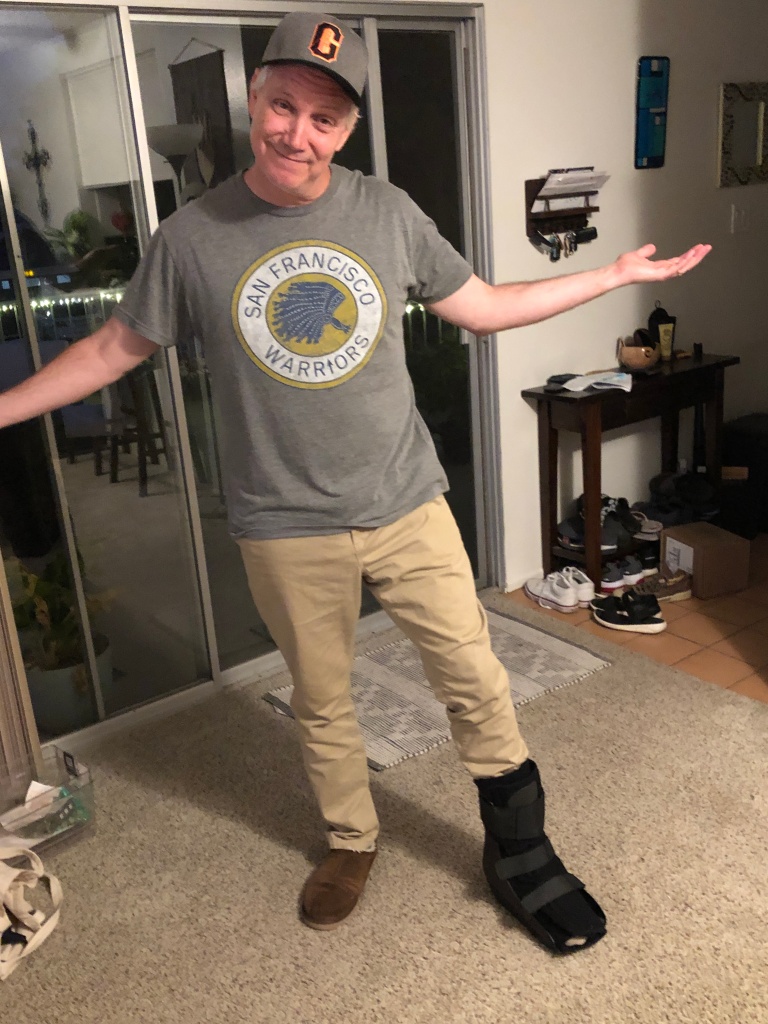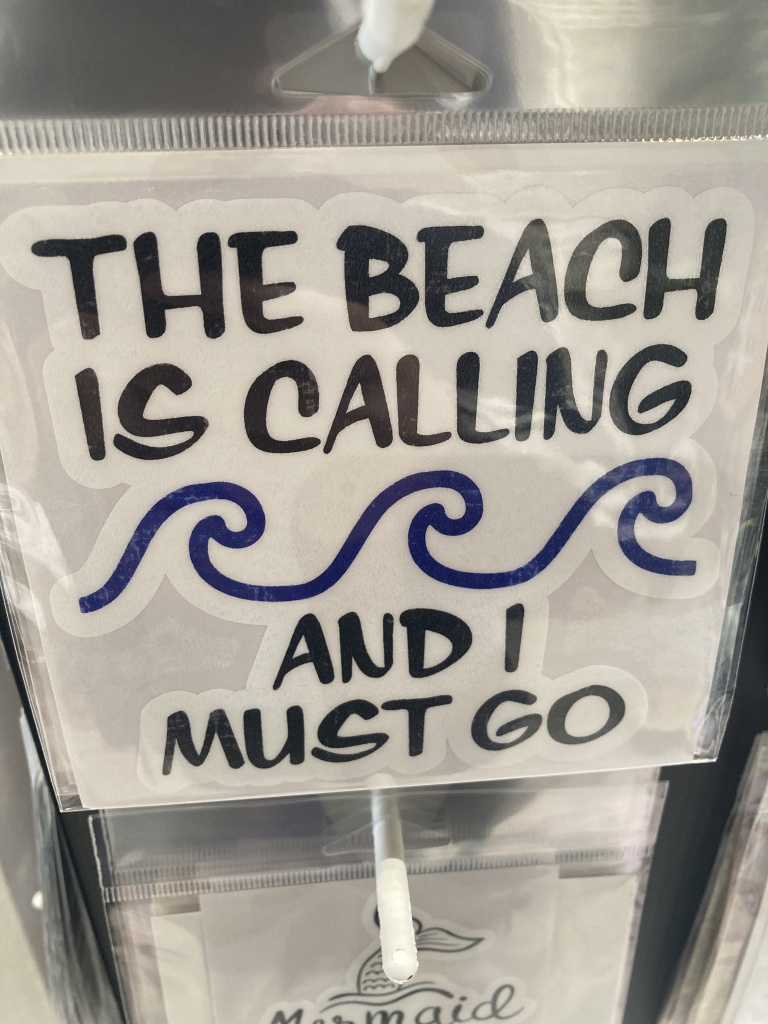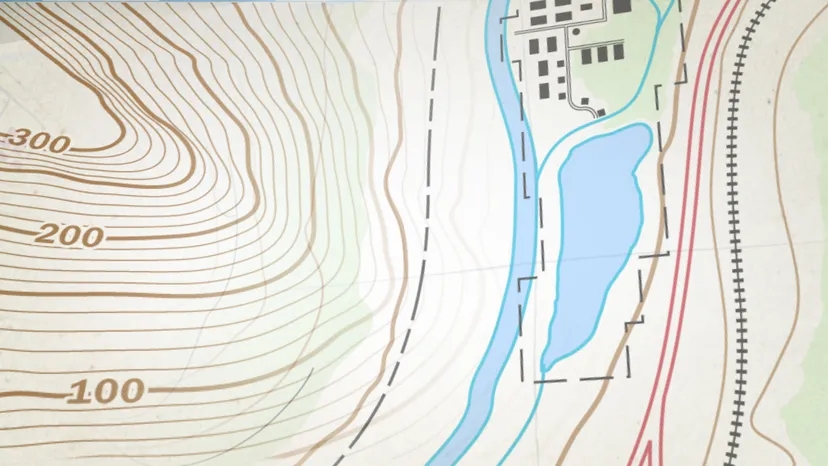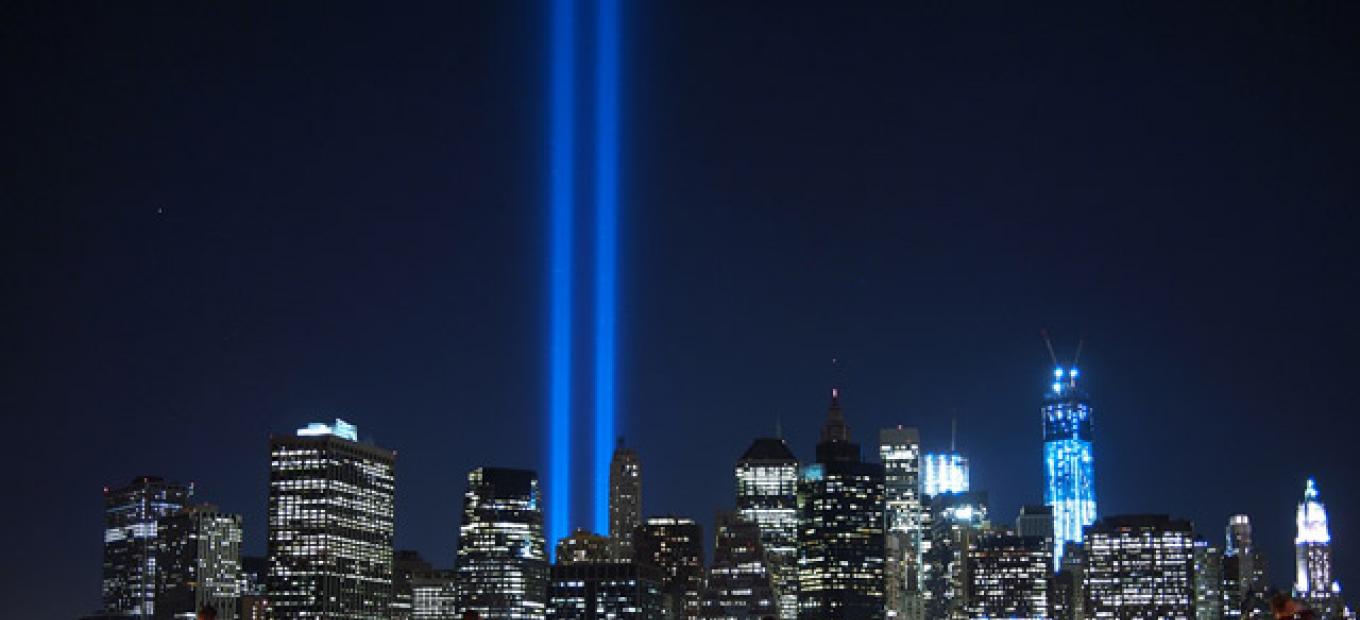It’s been almost a year since I nearly drowned.
Looking back, it’s easy to see that every choice I made leading up to the incident (as I like to call it) played a part, and that by the time I took my first step into the ocean that morning, something bad was bound to happen.
To begin with, while I am (normally) a strong swimmer, I am a novice surfer. I wasn’t entirely familiar with the break I intended to surf that morning and my lack of experience blinded me to signs that should have kept me on the sand. I was also (admittedly) out of shape. Finally, at the start of last summer, I made the ambitious commitment to surf every day; I needed to rebuild my conditioning and the promise, audacious as it was, was supposed to give me the leverage I knew I would need. So, on a cloudy morning last June, when I surveyed the aggressive posture of the ocean, I was undeterred. Longboard tucked under by arm, I waded into a choppy, heavy swell, mentally patting myself on the back for being so committed.
The spot I picked features a rock jetty that extends about 100 yards into the water. It was constructed decades ago to protect the Ventura shoreline from too much erosion while at the same time creating a calm community beach. Local surfers congregate beyond the jetty in a spot they call the Dredge.
I had no intention of surfing the Dredge. The regulars there, some of the best surfers in Ventura, are territorial about the spot and would have disdained an unfamiliar, inexperienced 54-year-old clogging up their lineup.
My plan was to stay on the other side of the jetty and catch whatever scraps rolled my way. I didn’t expect to catch much, if anything. My goal was to start slow – work my way back into shape by paddling around by myself. If I caught a wave or two, all the better.
I paddled out a good 50 yards north of the the jetty. My inexperienced eyes judged that to be a sufficient cushion to paddle through the current and the crashing waves to the calmer water beyond.
Waves hammered me as I tried to paddle out, however, and progress was slow. Every time I came close to getting clear of the crash zone, another wall of whitewater pushed me back. Meanwhile, the current was nudging me closer and closer to the rocks.
It all happened quickly. I stopped paddling for a moment to catch my breath and relieve my burning shoulders, and suddenly, the jetty was right next to me. I could smell the earthy, briny odor. I could see the moss and the oily black muscles covering the concrete and rocks. I could hear the water slapping against them.
I knew at this point that I was in trouble. Exhausted, caught between a strong current and a wall of rock, I bobbed up and down on my board like a cork. My best chance was to gather whatever strength I had left and paddle hard to clear the jetty – get over to where the experienced surfers were lining up. But I was already out of time. The current had pushed me close enough to touch the rocks. I remember placing my hand on their slippery surface, hoping to push off and use that momentum to propel me around the jetty.
But then another wave came. It swelled under my board, pushed me skyward, and threw me back first into the rocks. The impact slammed into my shoulder, my hip, and my arm. My board shot off in some other direction.
After the water rushed past me, I took a quick self-survey. Not too bad. No horrific injuries as far as I could see, although I couldn’t see a lot. I was wedged ribs deep between the rocks. I considered trying to climb the jetty to safety, but the rocks would have been too slippery even if I had the time to try. It was going to take all my strength just to get out of the rocks.
I tried to wriggle free, but I was already out of time. A second wave – a much larger wave – began to rise and curl toward my position. My instincts told me to crouch as low as possible and cling to the rocks. Maybe, I thought, they would shield me from the impact.
Not so much.
The swell hit from below first, pushing me out of the rocks like driftwood. I could feel myself ascending, and then the wave bent over my head. I was suspended. I could feel the weightlessness and I remember thinking, “This isn’t going to end well.” Above me was a wall of water and below me were rocks.
I heard the next sensation more than I felt it – a loud BANG as my body slammed into the jetty. Saltwater forced its way into my nose and down my throat. I tumbled, backward at first, then flipped once or twice as I pinballed between the rocks. I didn’t know which way was up. I didn’t know where the next impact would land – my head, my face, my spine. I was sure I was about to die.
The surfers beyond the jetty could not see me at all, so there is no one I can ask to explain what happened next. All I know is that when my head broke the surface of the water, I was about 10 feet clear of the jetty – not far enough to be safe, but still alive and at least no longer trapped in the rocks. My board, still tethered to my ankle, floated maybe a dozen feet away. The shore lay about 50 yards in the other direction.
I was beyond exhausted. I needed my board to keep me afloat, but I lacked even the energy to reach down and grab the leash to pull it toward me. My wetsuit felt too tight. I couldn’t catch my breath. I couldn’t take a breath. I was hyperventilating. I didn’t know the extent of my injuries. I was in shock. All I knew was I needed to get to shore or I was going to drown. And I needed to get away from those rocks.
I have spent most of my life on the west coast, and more hours in the ocean than I can count. I have never feared it. I have always wondered at how a good swimmer can get caught in a riptide and be lost at sea. In those moments just after the ocean spit me out from the rocks, I gained a new understanding. I could see the shore, tantalizingly close. And yet, try as I might, I could not beckon it any closer. My muscles had nothing left to give, and the tide was pulling me in the other direction.
“Breathe, Bob.” I told myself. And that helped. With each slow, deep inhalation I could feel a little life return to my arms and legs. I couldn’t fight the current and get to the beach, but I could keep my head above the surface.
It was in these moments that I seriously began to contemplate death. I thought about not making it home to my wife, who didn’t even know I had gone surfing that morning and who was probably still asleep. I thought about my daughters and the moments of their lives I would miss. I thought about some of the things I had always wanted to do with my life that would never happen.
I didn’t try to make any deals with God. Out there, at the mercy of the waves, the tides, and my weakness, I found a sense of calm. My situation, dire as it was, merely magnified a truth I had long-ago acknowledged. I was no less in control of my life or my safety or my future in that moment than at any other moment. I could have chosen not to surf that morning. I could have been nestled under my blanket at home instead, and if that was my moment to leave this world, I would have left it just the same. The fear and panic I was feeling was a reaction to the circumstances, not to the reality. Out there on the water, helpless as I was, I found comfort. If this was my day to enter eternity, then it was my day.
Two factors led to my escape. The first was that there was no third wave. The sea was calm after my second collision with the rocks. That was a mercy.
The second was that I stopped trying to swim to shore. I knew I couldn’t make it. I also knew that on the other side of the jetty, there were surfers. If I could get to them, they could help me.
I turned around and swam out to sea. The jetty was mere feet to my left, but I was out of options. Within seconds, I could reach my board – another mercy – and a few seconds later the current, which I later learned acts as a conveyer belt if you are within a few feet of the jetty, carried me past the tip of the rocks. With one arm wrapped around my board, I was able to side stroke my way to relative safety on the other side.
Now the waves and the tide were working with me. They pushed me shoreward. I half paddled, half drifted past the Dredge’s strong break and into the soft cove of Marina Park Beach. I got about 10 steps out of the ocean and collapsed on the sand, sucking air, retching, and taking stock of my injuries.
My left side was a mess – lacerations across the top of my left hand and wrist, and a chunk of skin gone (along with my surf shoe) from my left foot. My wetsuit was sliced along the outside of my right thigh, and I could see the slice had penetrated my skin. My right shoulder was scraped up and already bruising. The bruising on my hips took a couple of days to emerge.
After about 20 minutes, the bleeding mostly stopped, and enough of my strength returned for me to pick up my board and go home.
I was never so grateful to walk through my front door – although Debbie was not pleased to hear my story. She has only ever tolerated my surfing and would rather me trade my surfboard for a boogie board – or an innertube.
I’m undecided about that. But if I were to stop surfing, it wouldn’t be out of fear.
It took several months to heal, and by then the weather had turned too cold (for me) to do any surfing. And it feels like it has been raining here since January.
But it’s nearly May now, and the sun has returned to our little coastal town. I see surfers almost every day now, and I wonder when I’ll take my turn.
I’m curious what emotions are waiting for me out there. For that reason alone, I know I have to do it. So I guess I’m actually not undecided – at least I’m not as I write these words. I will surf again, albeit with some hard-earned lessons applied.
I won’t go by myself, and I have already promised Deb to pick a spot far away from any type of rock formation. I’ll make sure I’m in some semblance of cardiovascular shape before I enter the water.
I’ll pay attention to what the waves are telling me.
I’m already starting to do that – I look for the signs every time I walk along the coast. I listen to their rumble every night now that it’s warm enough to sleep with the slider open.
What I see and what I hear are the same as I have always seen and heard. The waves are well-named; their greeting is as friendly to me as it has always been. Even their crashing sounds to me like an invitation – one I’ve never been able to refuse.
I’ll answer soon.







 Originally published in the The Santa Clarita Signal, 2002
Originally published in the The Santa Clarita Signal, 2002




